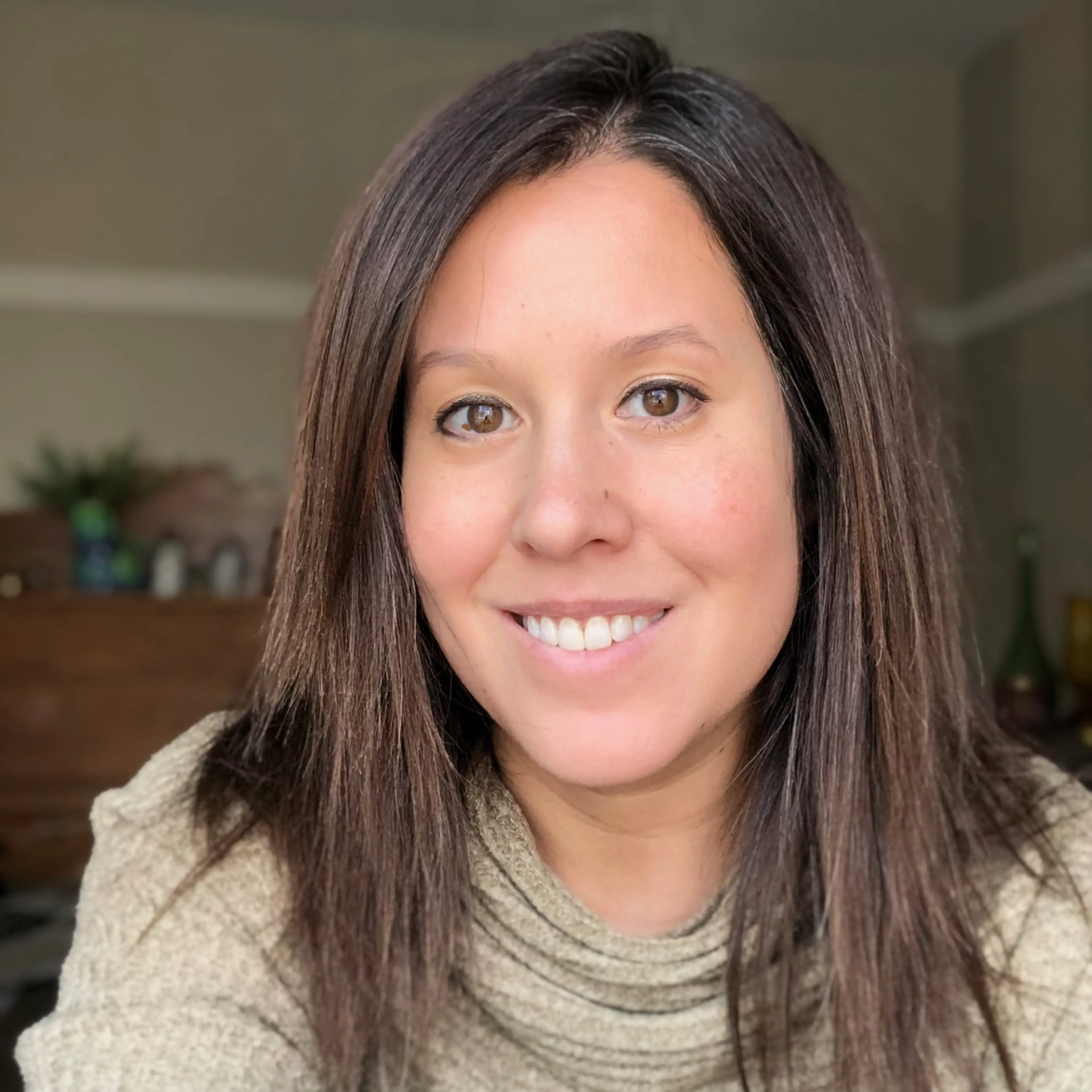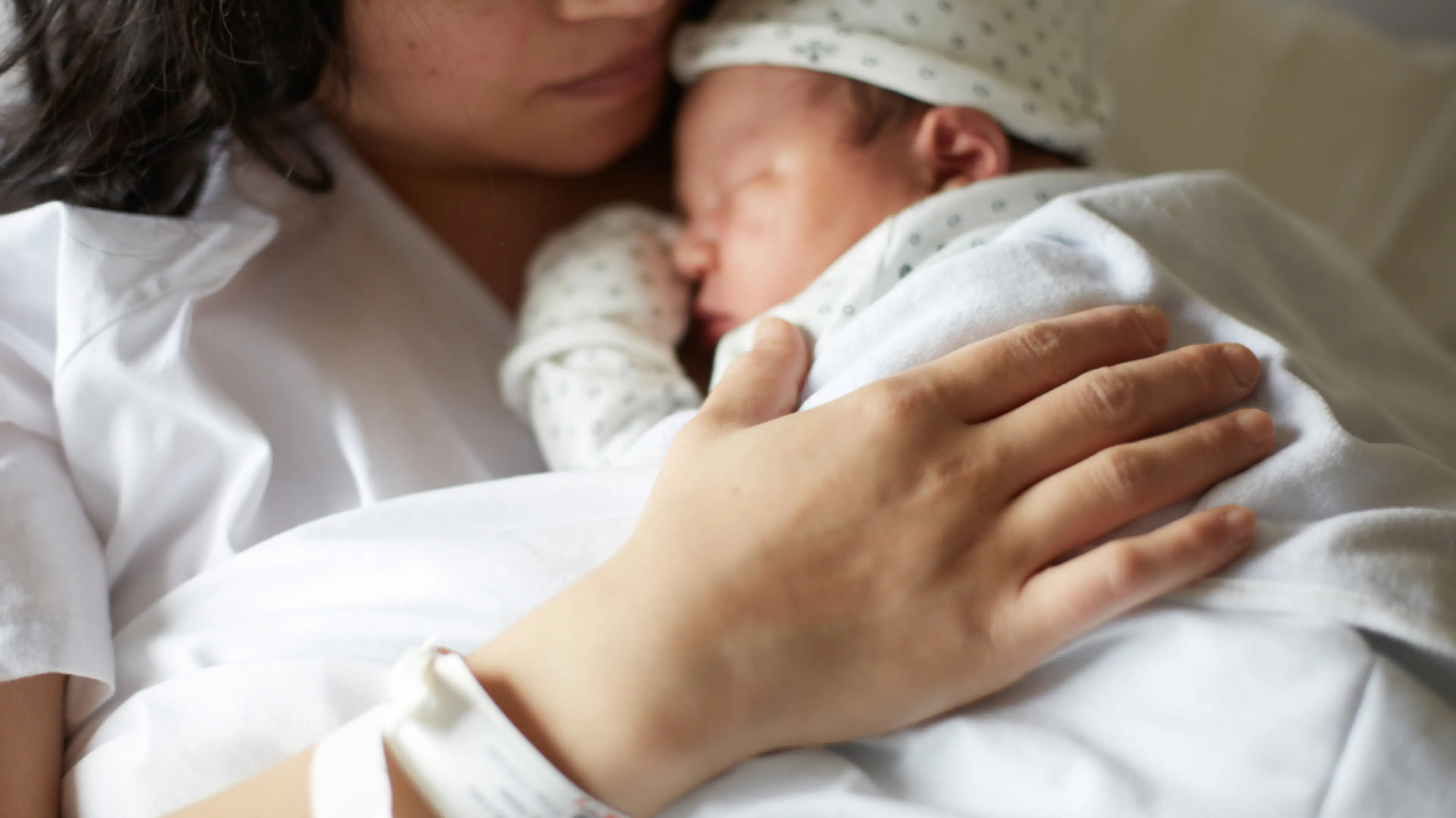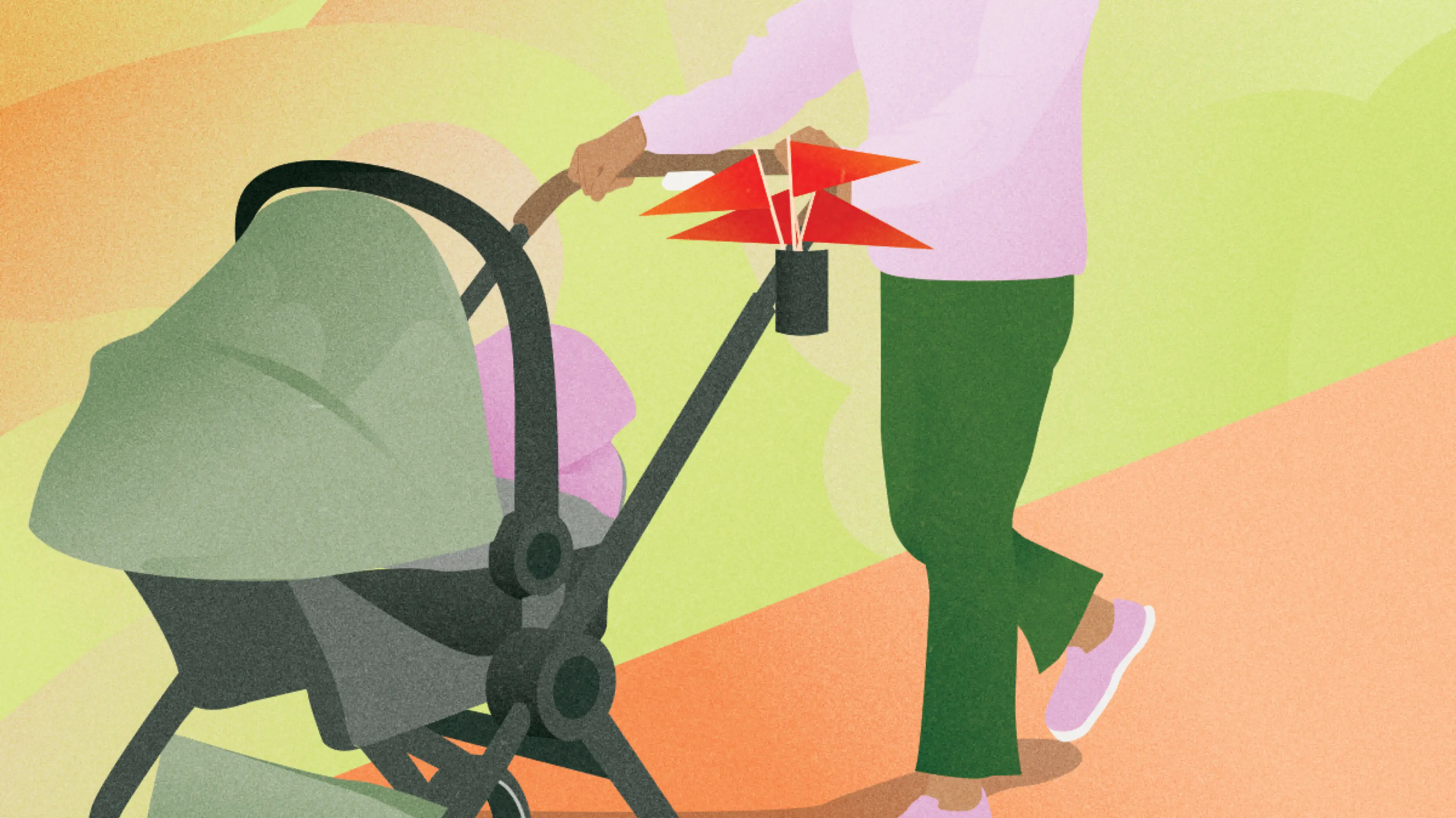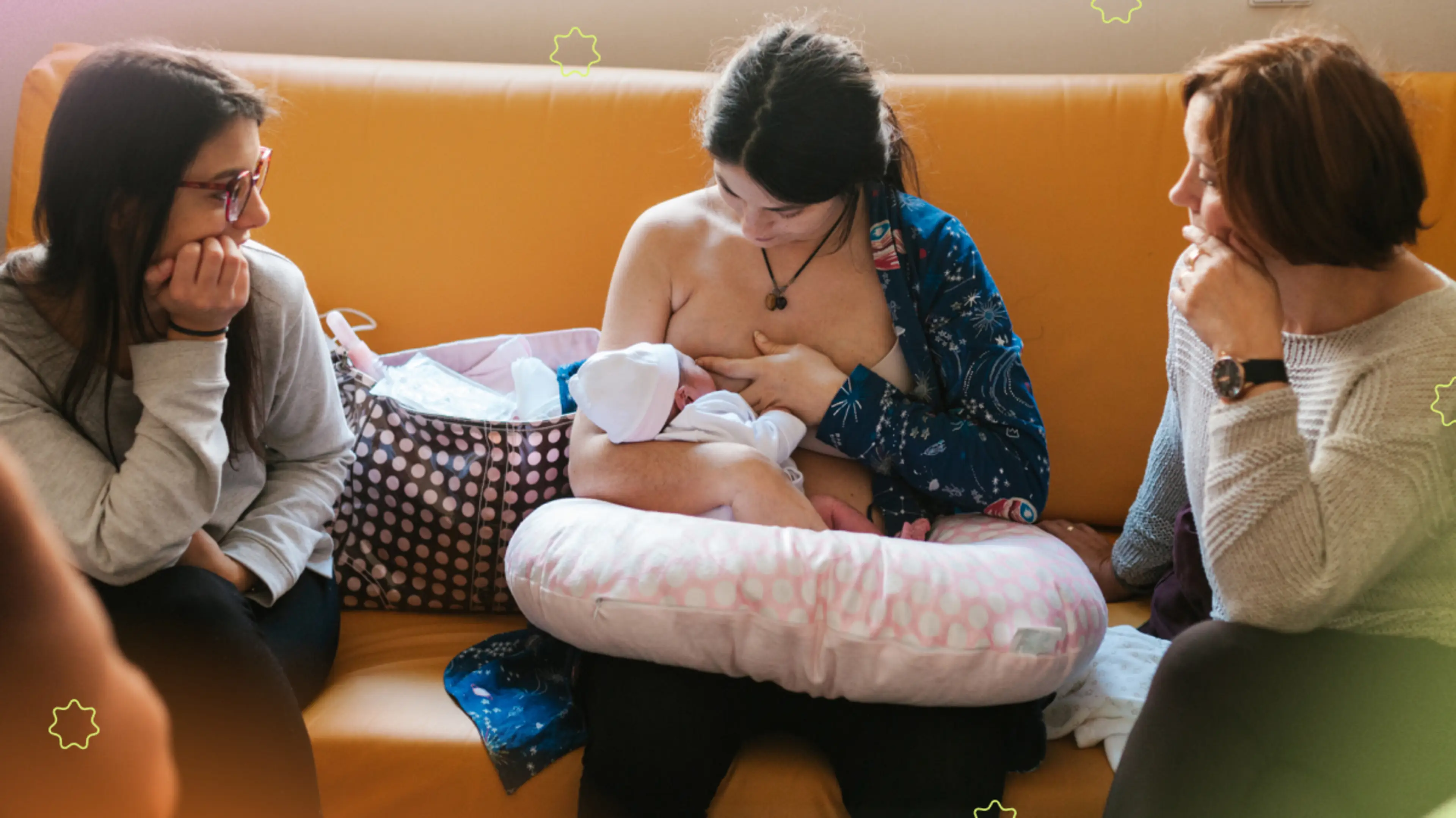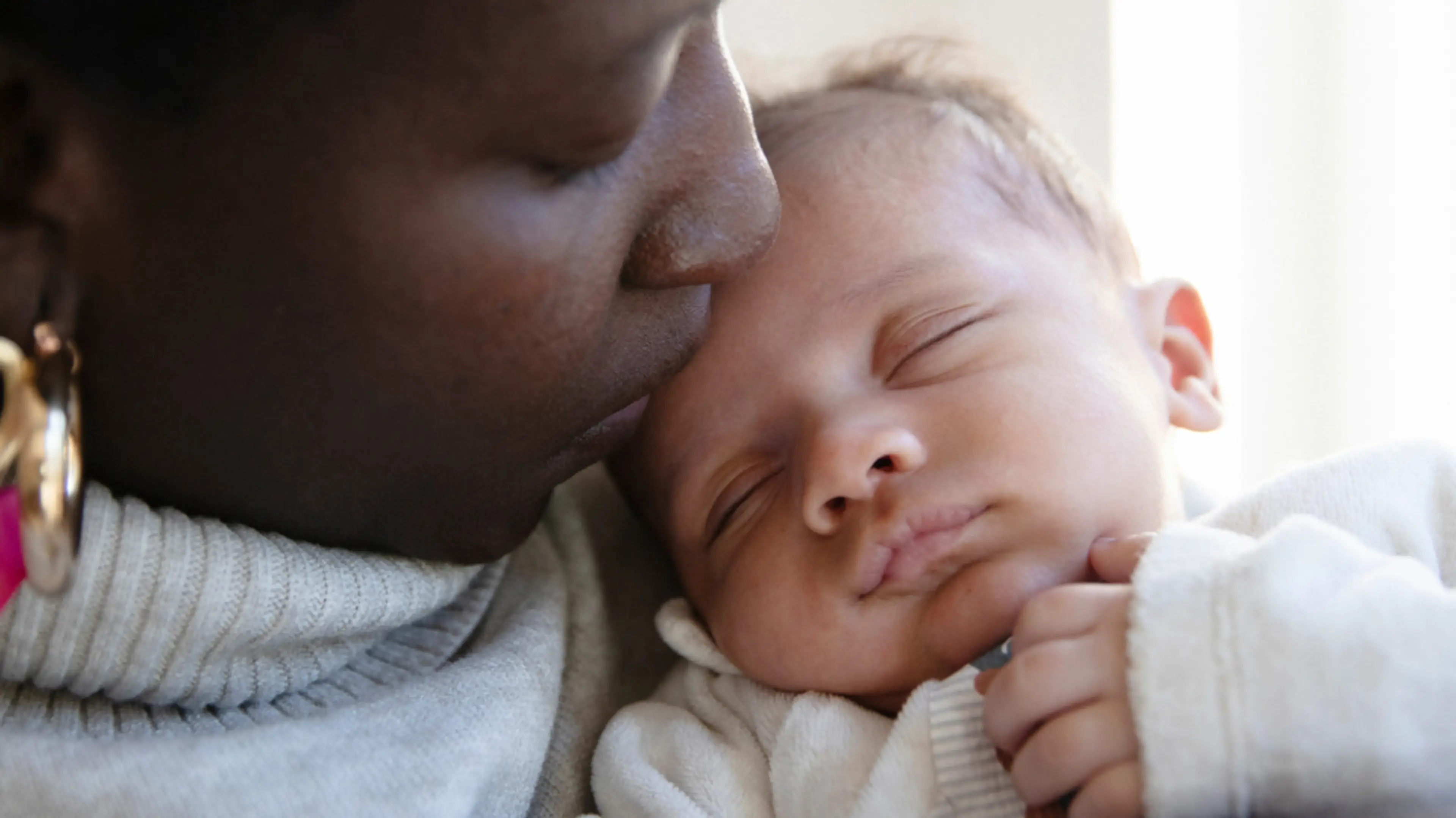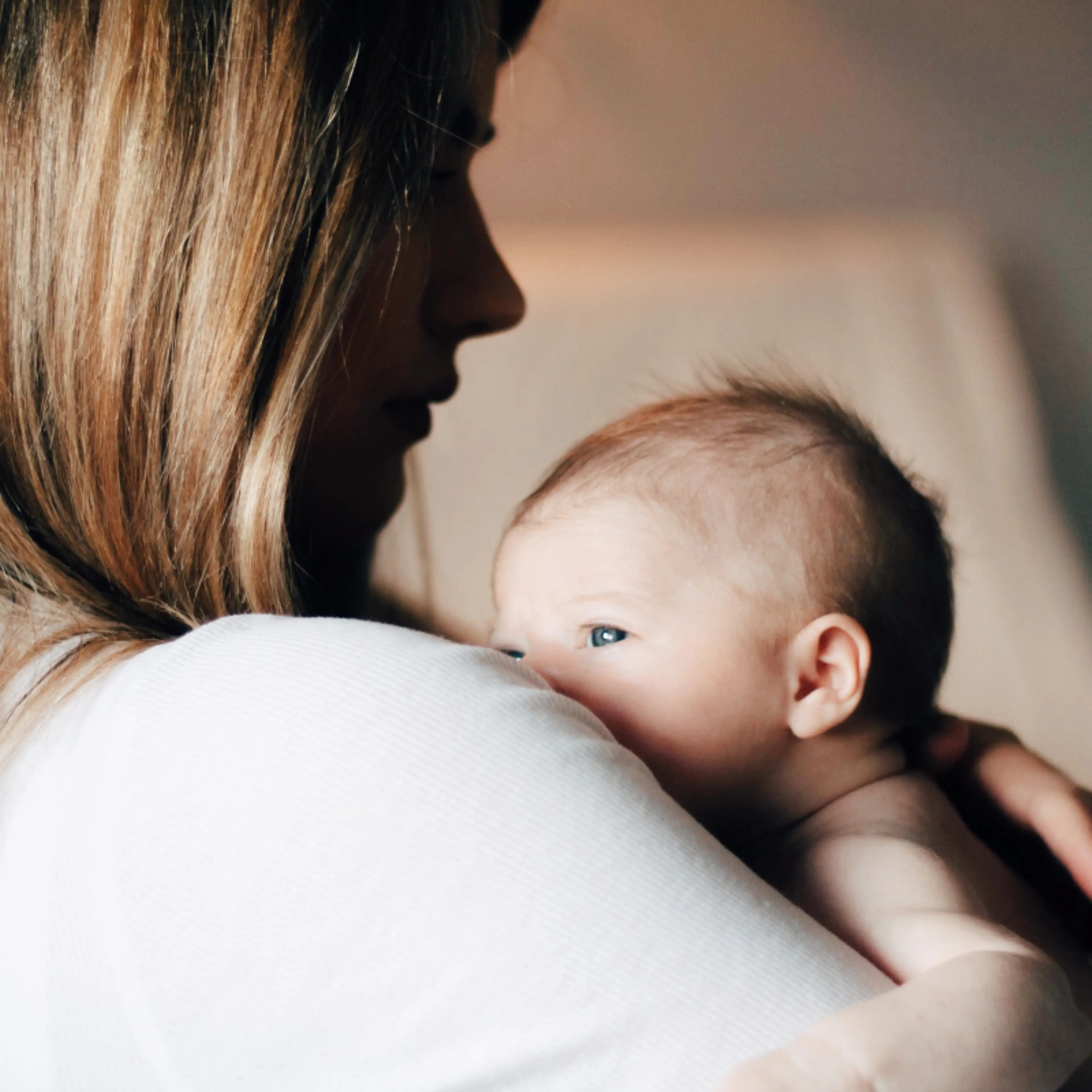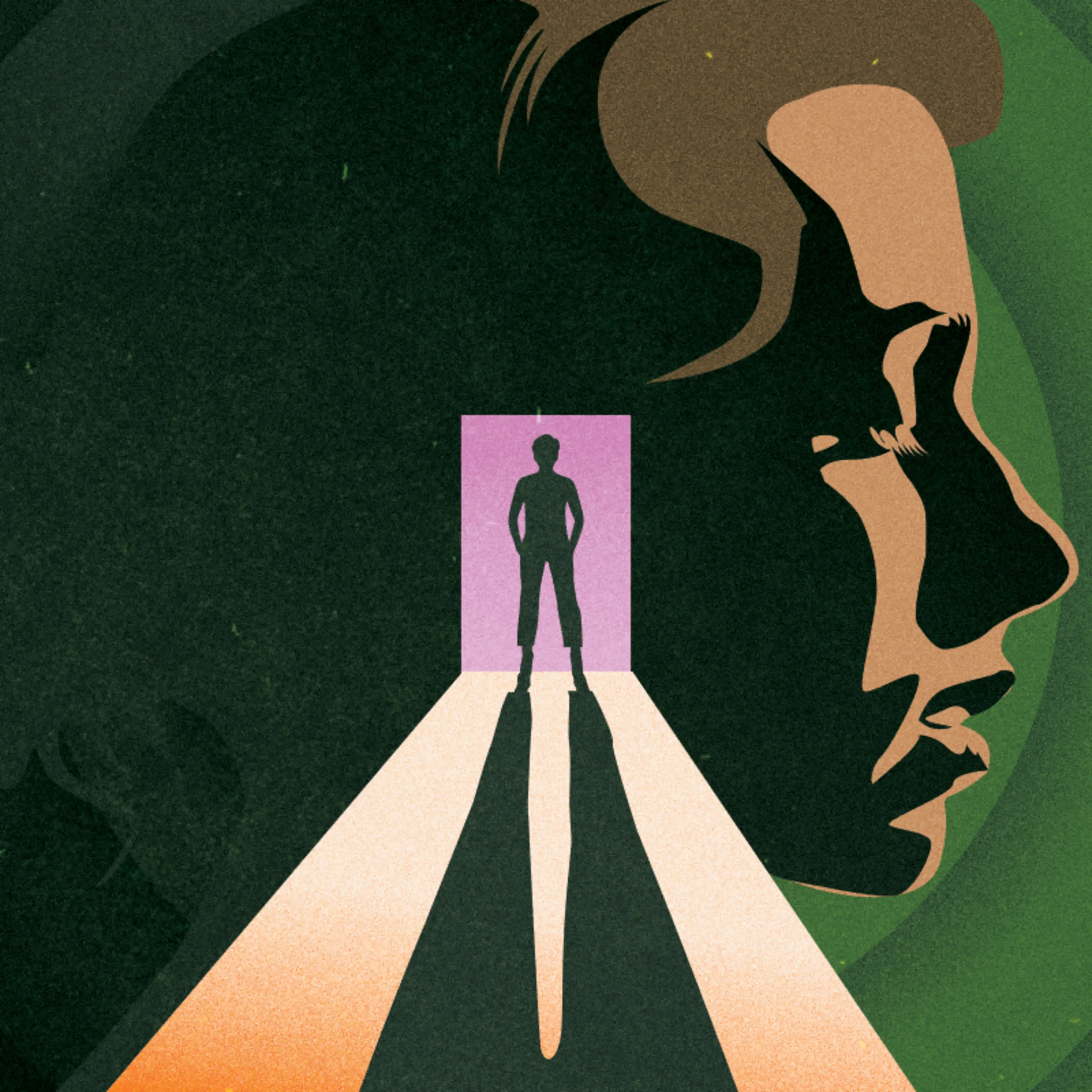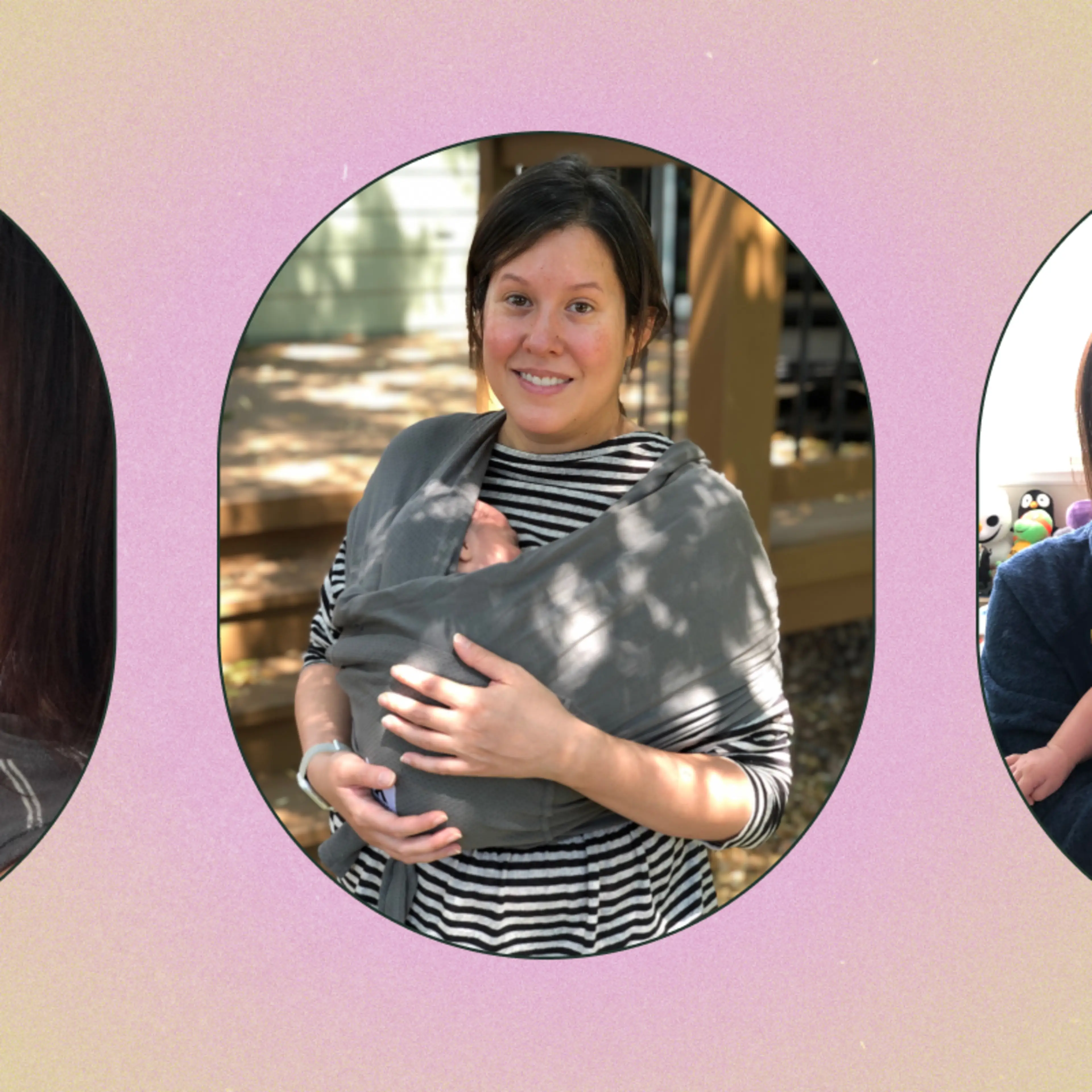In 1980, Dr. Deepika Goyal was living on a Japanese military base after giving birth to her first child at the tender age of 21. She was isolated and alone, having no family to help her with the practical day-to-day challenges of a newborn. “I had depression, but I didn't know what it was,” says Dr. Goyal, who is currently a professor of nursing at the University of San Francisco. “There's a photograph of me with my daughter in Japan—and we're wearing kimonos—and if you look at my eyes, they really look empty.”
When Dr. Goyal asked her mom if she’d ever heard of postpartum depression, her mom’s response was, “Deepika, you’re fine, don’t worry about that.”
While that conversation happened over 40 years ago, it’s not an uncommon exchange even now in Asian American families. Here are the facts1 : Asian American women are the least likely racial group to seek help for their mental health and will only reach out for treatment as a last resort, according to Dr. Goyal’s research2 . Perhaps because of that initial resistance to get help, “Asian American women are almost nine times more likely3 to present with thoughts of suicide,” says Dr. Goyal.
In addition, many AAPI moms are resistant to therapy and medication due to cultural stigma and may even view those treatments as personal failures. In one small study of Chinese American moms, some participants noted that postpartum depression did not exist in their culture because people don’t talk about it4 . Because of these barriers5 and more, Asian American moms are not being appropriately diagnosed with PPD.
In the time since that illuminating picture on the military base, Dr. Goyal has become one of the leading researchers in Asian American perinatal mental health, largely because of her experience in those early days of motherhood. What she has found is that, while there are many different communities with deeply rooted beliefs and customs, mental health stigma exists across the AAPI board—even today.
What Unique Mental Health Challenges Do AAPI Moms Face?
Having a baby is a universally mind-blowing experience, no matter your background. In a split second, you go from having to take care of one reasonably capable person (you) to being on-call for every single life-sustaining activity of a loud little thing who doesn’t yet have the capacity to appreciate your hard work. It’s a lot for anyone, and there is no shame in asking for help if you feel overwhelmed. But for Asian American moms, there are some unique challenges when it comes to the asking (and receiving) part.
Not having the understanding or language to talk about mental health
Guess what makes it hard to reach out for mental health help? Not knowing you need it in the first place. Unfortunately, it’s pretty common in Asian American families to talk about the physical sensations of mental health rather than the feelings, says Dr. Rose Yang, a psychology fellow at the Baylor College of Medicine. “The experience of mental distress is often expressed through the body, like fatigue, because that’s more culturally appropriate and acceptable to talk about than depression,” she says.
That means that the typical postpartum depression screenings in your doctor’s office may not pick up on these cultural differences in how postpartum depression or anxiety are experienced. “For practitioners, when talking about postpartum pain, we really need to look at whether this is ‘normal pain’ or if there are other things exacerbating it, like postpartum depression,” says Dr. Yang.
When it comes to talking with family, mental health is likely off the table as a conversation starter, particularly in older generations, says Dr. Emily Hu, a licensed psychologist at Thrive Psychology. Because Asian parents6 have a tendency to view mental health issues as a personal weakness, you’re taught to push down your emotions to remain stoic on the outside. “It’s almost like it doesn’t exist, and younger generations7 often have to navigate talking about mental health with older generations who don’t really have an understanding of mental health care yet—they weren’t raised with that vocabulary.”
That can make it difficult to communicate and connect with loved ones around how you’re feeling postpartum, says Dr. Hu. “It may not necessarily be that [your parents] are being sticklers or trying to be malicious, they genuinely just may not understand what we’re going through, especially under the stresses of pregnancy and birth.”
When Willow Li, 40, had her first child 10 years ago, she’d had very little exposure to the concept of postpartum depression. She grew up in a traditional Chinese family, and while her mom came to stay with her after she gave birth, mental health was not a topic they discussed.
“It was confusing in the beginning because I didn’t know if the foggy feeling I had was normal or not, because my mom never talked about it,” she says. “I just never had that knowledge passing down from older generations about what to expect when I had my first baby.”
Looking back, she says the “funk” she experienced as a first-time mom was likely more than just the baby blues. “I would say there was probably some mild depression, but I guess I just didn’t recognize it,” she says.
Feeling deep shame about postpartum depression or anxiety
Sharing sensitive or personal information outside of the family—including with doctors and therapists—is a pretty big faux pas in Asian American culture, and so too is being overly emotional. Add that to the rollercoaster of hormones and mood changes that come with having a baby, and the expectation to hold it together can be really hard on new moms in this community.
Having a baby is seen as such a joyous event in Asian culture and new moms are expected to feel grateful for being able to continue the family lineage, says Dr. Yang. “I’ve noticed there isn’t a lot of tolerance around being able to express a different experience, like, ‘I feel regret, I feel dismay, I feel overwhelmed,’” she says. “It feels like there needs to be a lot of joy for the family around having children, especially their elders who are talking about how great it is to have a large family, and that can be pretty silencing for women who don’t feel that way all the time.”
Dr. Christina Hong Huber, a clinical professor of psychology at The George Washington University’s Department of Psychological and Brain Sciences, has seen this play out in her own practice. One of her patients secretly called in for a therapy session from another room while her family was visiting. “She was crying and told me, ‘I’m not supposed to be getting emotional,’” she says. “She was getting it all out in this session, and when she stepped back into the room, she was supposed to be fully contained—and it’s hard to see that because you should be allowed to feel and do whatever you need to do.”
Difficulty navigating cultural traditions
In Asian culture, after giving birth, women enter a period of confinement that typically lasts about a month, and involves the new mom adhering to certain customs that aid in healing her body postpartum. The customs vary, but can involve things like staying in bed, not washing your hair, not brushing your teeth, not going outside or being exposed to wind, as well as eating and drinking specific foods, like seaweed soup, that contain traditional herbs and spices. All of this is done under the care of your mother or mother-in-law, or the other women in your family, who also help you take care of the baby.
“These traditional customs are not necessarily aligned with Western medicine,” says Dr. Hong Huber. “So, there is a conflict between these Eastern practices and the Western guidelines that, I think, is at the core of the Asian American experience—we are conflicted with owning and disavowing both the Eastern and Western aspect of our identities.”
There are definite benefits to this practice, like having time to heal and be cared for in a nourishing way, as well as built-in social support and childcare postpartum, says Dr. Hu. But, depending on your family relationships, it can also involve conflict, including having trouble setting boundaries around how you want to recover and parent your baby.
That push and pull was something Echo Wang, 41, experienced when she went to live with her mother—away from her husband—for a period of confinement after giving birth to her son. “My mom is from a traditional Asian family that focuses on the baby, so she would tell me, ‘Remember, you’re number two now and the baby is number one,’” she says. “I don’t blame my mom, because that’s the tradition, but I think my husband saw us both as number one, so it was challenging to be apart from him.”
Clashing with your parents can then bring on more emotional strife, as many Asian Americans struggle with anxiety and people-pleasing, says Dr. Hu. “That can make it difficult to set and maintain healthy boundaries, especially with older generations who always have a lot of advice and a specific way of wanting to do things.”
Being isolated from relatives who live abroad
Feeling isolated in new motherhood isn’t inherently an Asian American mom thing, but being a recent immigrant can make this feeling even more pronounced, says Dr. Hu. “By definition, we were cut off from our villages very recently, and many of us—first, second, even third generation immigrants—have not had the time or the resources to build up our own villages here.”
Dr. Hu, who says she struggles with this personally as a first-generation immigrant with an 8-month-old, describes her own village as consisting only of her parents and a second cousin. “It’s a dynamic that I think a lot of other communities that have been more well-established here don’t understand,” she says, noting that feeling isolated can exacerbate postpartum depression.
Internalizing the model minority myth
When it comes to stereotypes, the myth of the model minority is pretty pervasive in our society. The story goes that Asian Americans excel in school, music, and STEM-related jobs, thanks to the relentless pushing of a “Tiger Mom” behind the scenes. Asian Americans are also seen as self-sufficient, polite, and law-abiding, making them the “ideal” or “most successful” minority.
For postpartum moms, this myth can be harmful in a couple of ways. One, in the doctor’s office, Asian American mothers might be seen as being put-together and doing just fine, says Dr. Goyal, when in reality, they are not. “We know from other research that college students and Asian adolescents are very depressed, they have some of the highest depression rates, because from childhood there is this pressure [to be perfect], and it just continues.”
Asian Americans also tend to have a high deference to authority figures, especially doctors, says Dr. Hu. “A lot of us will go to our follow-up appointments at the ob-gyn and not want to bring up any of these symptoms [of depression] and not want to ask questions,” she says, and instead will focus only on information on how to best care for their baby. “I definitely think there is some inadvertent silencing that happens there.”
How Can We Reach More Asian American Moms With PPD?
So, what’s being done to fix this? Like many of the mental health challenges we are facing as a society, there isn’t one catch-all solution. A number of smaller inroads are being made to help Asian American moms feel more comfortable asking for help.
Having more representation and culturally competent care
When it comes to the healthcare system, there is still a lot of work to be done in terms of having culturally responsive care in medicine, says Dr. Hong Huber, “but I’ve been heartened to see that there’s been a little bit more representation, and being able to find providers who you identify with and look like you.”
Of course, having a doctor or therapist with a similar lived experience as you can help you feel more comfortable opening up, says Dr. Hu, but even having a provider who is curious about you, and shows that they want to know more about your experiences can help you feel psychologically safe. In addition, she says, “I think it falls on us as providers to be proactive about normalizing and validating all sorts of experiences postpartum, including depression and anxiety,” she says.
That could be your doctor saying something as simple as ‘a lot of women struggle with low mood after giving birth, is that something you’ve been experiencing?’ That can normalize and validate their experience instead of giving it special attention on a questionnaire, which can feel a little too formal, says Dr. Hu.
Experimenting with less formal therapy and support groups
Tying postpartum mental health with a medical provider can be tricky for people in the Asian American community, because they are more likely to seek out mental health help in the form of peer support groups or talking with friends and family, says Dr. Yang.
For that reason, there is some experimentation being done to integrate mental health screenings into the care of less formal providers, like lactation consultants, doulas, or what’s called “listening visits” with nurses that allow women to talk through their situation without necessarily needing therapy, says Dr. Goyal. This informal type of screening can also help catch people who may need more traditional treatment.
The boom in online therapy is also reaching people who feel less than comfortable talking to their doctor in person. Julia Kim, 39, says she was hit hard with postpartum anxiety and depression after having her second son, while also in the midst of starting her own postpartum retreat business. “One night, on a whim, I saw an ad for an online mental health platform, and I just signed up.”
Peer support groups are another way to help women feel heard—to be able to ask fellow moms what’s normal and what’s not, and to generally feel less isolated in their experience, says Dr Yang. Two good places to start? Postpartum Support International and the Asian Mental Health Collective.
Reimagining the period of confinement
Having honest, vulnerable conversations with your loved ones may feel like a big ask, but doing so can ease the tension in your life. This is especially helpful if you want to honor cultural traditions, like the period of confinement, but also tailor them to work for you, says Dr. Hong Huber. Instead of staying in the house, maybe you can sit on the deck wrapped in a blanket—you’re following the custom of avoiding wind, but you’re still getting some sunlight and serotonin, she says.
Or maybe you decide you don’t want to do the ritual at all, like Kim did, and that’s okay, too. “My mother offered to have me at her house, and I said no, because I thought there was no way that I’d be able to cope and have to hold it all in,” she says.
In other cases, it’s just a matter of shifting your perspective, says Dr. Hu. “Our mother’s generation tends to show love and affection through action, so cooking, cleaning, taking care of the baby, and setting boundaries around those things can almost feel like a rejection of her love,” she says. Recognizing that can then help you initiate a loving conversation around how and why you want to do things a bit differently.
There Is Already a Shift Happening
The good news is that mental health professionals are seeing a cultural shift: millennials and Gen Z-ers are more open and willing to access mental health resources, says Dr. Hong Huber, who works with a number of Asian Americans in her therapy practice. Even older generations seem to be more willing to engage in therapy for their children, she says.
“I'm guessing it's because of the overall shift away from mental health stigma in our society, and especially for Asian Americans who have assimilated and acculturated a lot more—we are much more open about our mental health struggles,” says Dr. Hu.
There’s also something to be said for the willingness of new moms—of all backgrounds—to share their mental health journey on social media, Facebook mom groups, Reddit boards, articles, and IRL conversations. Because the more we talk about this—the parts that feel bad when we’re told that feeling good is the only option—the more comfortable all women will be opening up when it matters most.
